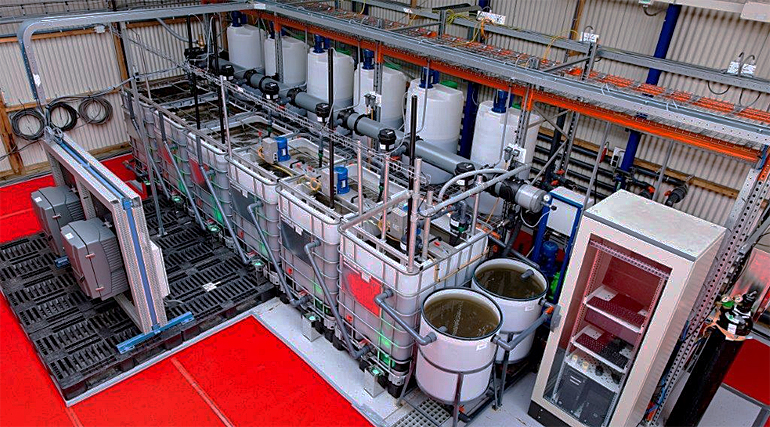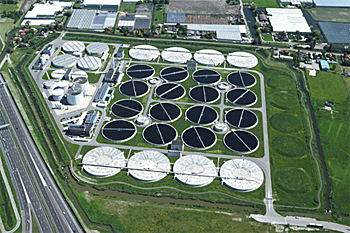Nereda pilot installation commissioned for continuous flow treatment of waste water at wwtp Harnaschpolder, the Netherlands
The pilot aims to develop and test the process conditions required to form granular sludge in an existing conventional wastewater treatment installation with continuous flow.

A Nereda pilot installation for wastewater treatment at wastewater treatment plant Harnaschpolder, the Netherlands, is officially commissioned on March 29th.
The pilot aims to develop and test the process conditions required to form granular sludge in an existing conventional wastewater treatment installation with continuous flow.
The test is conducted by a collaboration of the regional water authorities of Delfland and Rijnland, Delft University of Technology, and the companies Delfluent Services, Evides Industriewater and Royal HaskoningDHV.

With a capacity of 1.3 million population equivalents, wwtp Harnaschpolder, near Delft, is the biggest wwtp in the Netherlands and one of the biggest in Europe.
A step change
Worldwide some 25 Nereda plants have been commissioned to treat both municipal as industrial waste water,
The use of this new aerobic granular sludge technology is expected to be beneficial for various aspects of the wastewater treatment process. This represents a step change for the water industry.
So far all, plants have been built as sequence batch reactors, enabling the settlement of the sludge without needing a seperate conventional settlement tank.
At wwtp Harnaschpolder, the Nereda process is for the first time used in a continuous flow situation. The expected benefits are a significantly lower energy use and the possibility to extract a valuable raw material, alginate-like polymers.
An additional advantage is that due to the small footprint required by this process, capacity can be increased or further space can be released for post treatment to improve the quality of the effluent.
Suitable for existing wwtp
If the results of the pilot are positive, this granular sludge technology is expected to be suitable for several existing wastewater treatment plants.
For the owner of wwtp Harnaschpolder, the Dutch regional water authority Delfland, this pilot fulfills its ambition to purify water and reuse raw materials and water with the lowest possible energy consumption.
Fast settling granules
Developed by Royal HaskoningDHV in the Netherlands, Nereda is the first process to successfully harness the benefits of aerobic granular sludge technology.
Nereda technology naturally selects fast settling granules, allowing higher concentrations of active biomass to be accumulated.
The compact plants achieve very high levels of nutrient removal, without chemical dosing and uses far less energy than alternative solutions.
This news item was originally published on the website of Royal HaskoningDHV.
Read also on this website
● Delft University and Royal HaskoningDHV agree on further development biopolymer recovery from wastewater, 8 December 2017
● Large-scale extraction of Nereda alginate from waste water at wwtp Apeldoorn, the Netherlands, 20 April 2017
● United Utilities expects largest Nereda plant in the UK to be operational next year, 18 December 2017
● Expertise: Water technology
More information
RoyalHaskoningDHV
Amersfoort, the Netherlands
+31 88 348 20 00
www.rhdhv.com



